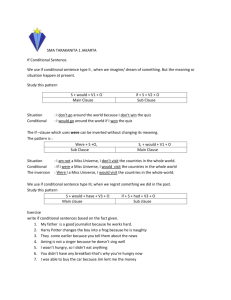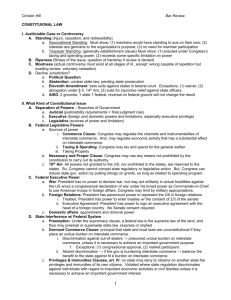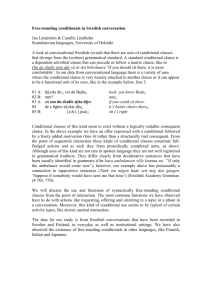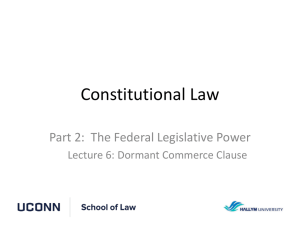Here
advertisement
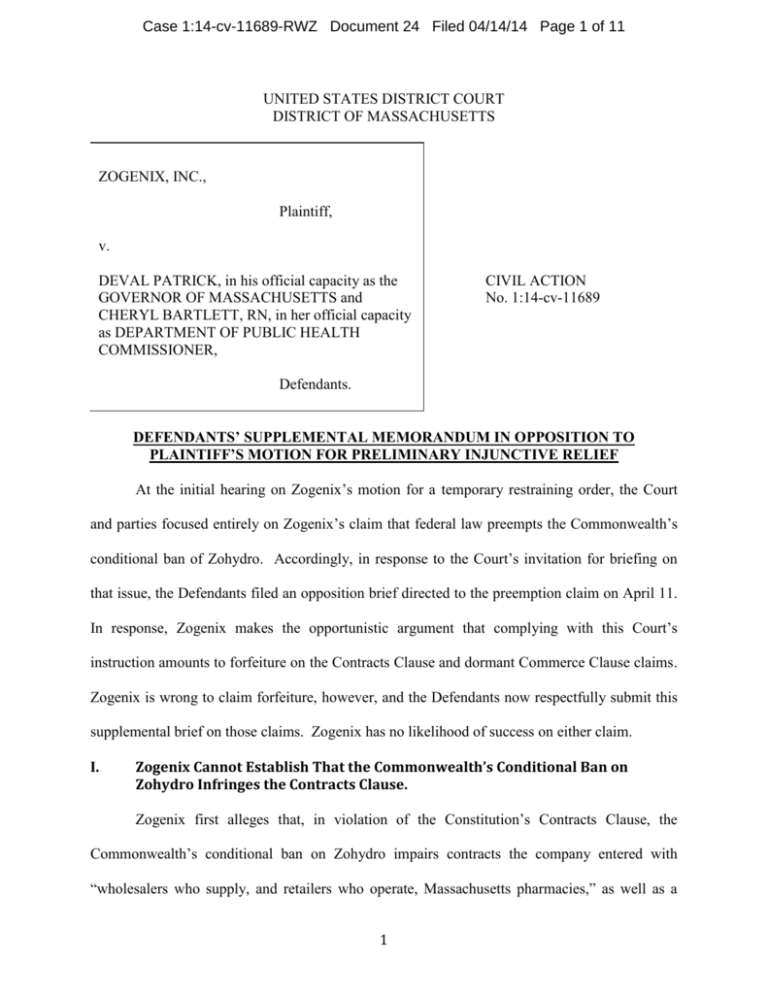
Case 1:14-cv-11689-RWZ Document 24 Filed 04/14/14 Page 1 of 11 UNITED STATES DISTRICT COURT DISTRICT OF MASSACHUSETTS ZOGENIX, INC., Plaintiff, v. DEVAL PATRICK, in his official capacity as the GOVERNOR OF MASSACHUSETTS and CHERYL BARTLETT, RN, in her official capacity as DEPARTMENT OF PUBLIC HEALTH COMMISSIONER, CIVIL ACTION No. 1:14-cv-11689 Defendants. DEFENDANTS’ SUPPLEMENTAL MEMORANDUM IN OPPOSITION TO PLAINTIFF’S MOTION FOR PRELIMINARY INJUNCTIVE RELIEF At the initial hearing on Zogenix’s motion for a temporary restraining order, the Court and parties focused entirely on Zogenix’s claim that federal law preempts the Commonwealth’s conditional ban of Zohydro. Accordingly, in response to the Court’s invitation for briefing on that issue, the Defendants filed an opposition brief directed to the preemption claim on April 11. In response, Zogenix makes the opportunistic argument that complying with this Court’s instruction amounts to forfeiture on the Contracts Clause and dormant Commerce Clause claims. Zogenix is wrong to claim forfeiture, however, and the Defendants now respectfully submit this supplemental brief on those claims. Zogenix has no likelihood of success on either claim. I. Zogenix Cannot Establish That the Commonwealth’s Conditional Ban on Zohydro Infringes the Contracts Clause. Zogenix first alleges that, in violation of the Constitution’s Contracts Clause, the Commonwealth’s conditional ban on Zohydro impairs contracts the company entered with “wholesalers who supply, and retailers who operate, Massachusetts pharmacies,” as well as a 1 Case 1:14-cv-11689-RWZ Document 24 Filed 04/14/14 Page 2 of 11 Massachusetts company named Inflexxion. Compl. ¶¶ 26-27, 52-60. It is mistaken. Any impairment of Zogenix’s contracts is not substantial because Zogenix operates in a highly regulated industry. Moreover, any impairment is justified by the Commonwealth’s legitimate aim to prevent the public health crisis in opioid abuse and addiction from worsening. The Contracts Clause provides that “[n]o State shall . . . pass any . . . Law . . . impairing the Obligation of Contracts.” U.S. Const. art. 1, § 10, cl. 1. “Though seemingly absolute in its prohibition, the Contracts Clause ‘must be accommodated to the inherent police power of the State to safeguard the vital interests of its people.’” Alliance of Automobile Mfrs. v. Gwadosky, 430 F.3d 30, 42 (1st Cir. 2005) (quoting Energy Reserves Group, Inc. v. Kan. Power & Light Co., 459 U.S. 400, 410 (1983)). That inherent power involves the “exercise of the sovereign right of the Government to protect the lives, health, morals, comfort and general welfare of the people, [which] is paramount to any rights under contracts between individuals.” Allied Structural Steel Co. v. Spannaus, 438 U.S. 234, 241 (1978). A Contracts Clause analysis proceeds in three steps. First, the court must ask “whether the state law has, in fact, operated as a substantial impairment of a contractual relationship.” Id. at 244. That inquiry “elicits an affirmative answer only if ‘a contractual relationship exists, that the relationship is impaired by a change in the law, and the resultant impairment is substantial.’” Gwadosky, 430 F.3d at 42 (quoting Houlton Citizens’ Coalition v. Town of Houlton, 175 F.3d 178, 190 (1st Cir. 1999)). Here, Zogenix has alleged that it has entered into contracts, and that those contracts will be impaired by the conditional ban, but it cannot establish that any impairment would be substantial. That is so because the contracting “parties’ reasonable expectations are central to the issue of substantiality,” and “[i]n that regard, it is especially important whether or not the parties have been operating in a regulated industry.” Id. Zogenix 2 Case 1:14-cv-11689-RWZ Document 24 Filed 04/14/14 Page 3 of 11 cannot credibly dispute that the prescription drug industry is highly regulated; it devotes much of its Complaint to detailing the lengthy regulatory procedures required for any new drug application submitted to the Food and Drug Administration. See, e.g., Compl. ¶¶ 14-20. Because they operate in a highly regulated industry, the law assumes that Zogenix and its contracting partners can foresee that “additions to th[e] regulatory regime” might disrupt their contractual obligations. Id. Under those circumstances, courts regularly conclude that any impairment of contract is not substantial. See, e.g., Energy Reserves, 459 U.S. at 413-15 (Kansas law impairing natural gas contracts did not impose substantial impairment because the parties operated in heavily regulated industry); Gwadosky, 430 F.3d at 42 (Maine law reordering automobile manufacturers’ and retailers’ franchise agreements was not a substantial impairment because automobile franchises are heavily regulated); see also Town of Houlton, 175 F.3d at 191 (“The general condition of regulation in the waste management industry . . . should have led [the plaintiff] to realize that his collection contracts could not be maintained ad infinitum.”).1 Because the Commonwealth’s conditional ban on Zohydro effects no substantial impairment of Zogenix’s contracts, its Contracts Clause claim fails at the outset. But even if the Court assumes substantial impairment, Zogenix’s claim would fail at the second and third steps of the analysis, “for even a state law that creates a substantial impairment does not transgress the Contract Clause as long as it is appropriate for, and necessary to, the accomplishment of a 1 A party seeking to show substantial impairment of a contract must introduce the actual contract into evidence because the question whether impairment is substantial turns in part on the contractual language. See Energy Reserves, 459 U.S. at 415-16. Thus, in Energy Reserves, the Supreme Court cited a contractual provision stating that “any contractual terms are subject to relevant present and future state and federal law” as evidence that any impairment was foreseeable to the contracting parties. Id. at 416. Zogenix’s failure to submit to the Court its alleged contracts with pharmaceutical retailers, wholesalers, and Inflexxion undermines any claim that those contracts do not anticipate additions to the regulatory scheme applicable to prescription drugs. 3 Case 1:14-cv-11689-RWZ Document 24 Filed 04/14/14 Page 4 of 11 legitimate public purpose.” Town of Houlton, 175 F.3d at 191. “The requirement of a legitimate public purpose guarantees that the State is exercising its police power, rather than providing a benefit to special interests.” Energy Reserves, 459 U.S. at 412. There can be no question that the Commonwealth’s conditional ban of Zohydro is appropriate for, and necessary to, the accomplishment of a legitimate public purpose. As explained in detail in the Defendants’ opposition memorandum, Massachusetts is in the midst of a public health crisis in opioid abuse and addiction. See Defts’ Opp. to Plft’s Mot. for a Preliminary Injunction (“Opposition”), at 4-6. The Governor and Commissioner reasonably determined that a new hydrocodone-only painkiller that (a) contained dosages of hydrocodone five times greater than any other hydrocodone product on the market, (b) was determined to be unsafe by the FDA’s Advisory Committee, and (c) lacked abusedeterrent features, would likely be abused and would exacerbate the public health crisis. Determinations of this sort are entrusted to elected officials and fall squarely within the Commonwealth’s police power. See Gwadosky, 430 F.3d at 43 (“[G]eneralized social or economic problems constitute legitimate subjects for legislation, notwithstanding the imperatives of the Contracts Clause.”); Town of Houlton, 175 F.3d at 191 (“Health and safety are two mainstays of the police power . . . [and] fit well within the category of remedies for ‘broad and general social or economic problem[s]’ that the Supreme Court has stated will meet its criteria of legitimacy in a Contract Clause context.”). In the third step of the analysis, “[o]nce a legitimate public purpose has been identified, the next inquiry is whether the adjustment of the rights and responsibilities of contracting parties is based upon reasonable conditions and is of a character appropriate to the public purpose justifying the legislation’s adoption.” Energy Reserves, 459 U.S. at 412 (internal quotation 4 Case 1:14-cv-11689-RWZ Document 24 Filed 04/14/14 Page 5 of 11 marks and alterations omitted). When the state is not a contracting party, “courts properly defer to the legislative judgment as to the necessity and reasonableness of a particular measure.” Id.; see also Gwadosky, 430 F.3d at 43 (“When, as in this instance, the State is not itself a party to a contract, courts ordinarily defer, within broad limits, to the legislature’s judgment about the reasonableness and necessity of a particular measure.”). Here, the Commonwealth is not a party to the contracts allegedly impaired. This Court, therefore, should defer to the Governor and Commissioner’s judgment that a temporary ban on Zohydro, one that can be lifted once adequate abuse-prevention measures are in place, is necessary and reasonable to prevent backsliding in the fight against prescription drug abuse. For all of these reasons, Zogenix’s claim is meritless. As the Supreme Court’s discussion in Spannaus recognizes: [T]he restraints of the Contracts Clause must be accommodated to the inherent police power of the state. It is the settled law of this court that the interdiction of statutes impairing the obligation of contracts does not prevent the State from exercising such powers as are vested in it for the promotion of the common weal, or are necessary for the general good of the public, though contracts previously entered into between individuals may thereby be affected. This power, which in its various ramifications is known as the police power, is an exercise of the sovereign right of the Government to protect the lives, health, morals, comfort and general welfare of the people, and is paramount to any rights under contracts between individuals. 438 U.S. at 241 (internal quotation marks omitted). This Court should determine that Zogenix is unlikely to succeed on the merits of its Contracts Clause claim. II. Zogenix Has No Likelihood of Success on Its Dormant Commerce Clause Claim. The Commerce Clause authorizes Congress “[t]o regulate Commerce . . . among the several States,” U.S. Const., Art. I, § 8, cl. 3, but the Court has also held that it “limits the ability of States and localities to regulate or otherwise burden the flow of interstate commerce.” Maine v. Taylor, 477 U.S. 131, 151 (1986). A state law may violate the dormant 5 Case 1:14-cv-11689-RWZ Document 24 Filed 04/14/14 Page 6 of 11 commerce clause in one of two ways: “[I]t may clearly discriminate against interstate commerce, in which case it is virtually invalid per se, . . . or even if it does not evince such discriminatory effect, it may still be unconstitutional if it imposes a burden on interstate commerce incommensurate with the local benefits secured.” Nat’l Elec. Mfrs. Ass’n v. Sorrell, 272 F.3d 104, 108 (2d Cir. 2001) (internal citations omitted). Zogenix does not contend that the Commonwealth’s conditional ban on Zohydro discriminates between in-state and out-of-state manufacturers or marketers of pain relievers, and properly so. On its face, the conditional ban makes no distinction between in-state and out-of-state businesses. And nothing in the conditional ban aims to prop up instate businesses to the disadvantage of out-of-state competitors. Thus, the more exacting form of dormant commerce clause scrutiny—reserved for state action that discriminates against interstate commerce—has no bearing on this case. Zogenix instead maintains that the conditional ban places an undue burden on interstate commerce. Pike v. Bruce Church, Inc., 397 U.S. 137, 142 (1970), articulated the test for evaluating such claims: “Where the statute regulates evenhandedly to effectuate a legitimate local public interest, and its effects on interstate commerce are only incidental, it will be upheld unless the burden imposed on such commerce is clearly excessive in relation to the putative local benefits.” “State laws frequently survive this Pike scrutiny,” the Supreme Court recently emphasized. Dept. of Revenue of Ky. v. Davis, 553 U.S. 328, 339 (2008). Moreover, “[t]he crucial inquiry” in any undue-burden case “must be directed to determining whether [the challenged law] is basically a protectionist measure, or whether it can fairly be viewed as a law directed to legitimate local concerns, with effects upon 6 Case 1:14-cv-11689-RWZ Document 24 Filed 04/14/14 Page 7 of 11 interstate commerce that are only incidental.” Philadelphia v. New Jersey, 437 U.S. 617, 624 (1978). Zogenix does not argue that the Commonwealth’s conditional ban of Zohydro is a “protectionist measure” designed to bolster in-state industry and burden out-of-state competitors. Indeed, the Governor has taken an emergency action to target an imminent threat to the health and safety of Massachusetts residents. The Governor and Commissioner, public officials charged with safeguarding the wellbeing of Massachusetts residents, determined that, if available in crushable form, Zohydro will exacerbate Massachusetts’ epidemic of opioid abuse and addiction. See Opposition, at 4-6. Accordingly, the Commonwealth restricted the distribution of Zohydro until “adequate safety measures are in place to safeguard against the potential for diversion, overdose, and abuse.” Plft’s Ex. G, at 2. That order, forestalling a public health crisis in prescription painkiller abuse, is a legitimate policy decision directed to a matter of local concern; indeed, it goes to the core of the Commonwealth’s police powers. See United Haulers Ass’n v. Oneida-Herkimer Solid Waste Mgmt. Auth., 550 U.S. 330, 344 (2007) (courts “should be particularly hesitant to interfere . . . under the guise of the Commerce Clause” where a local government engages in a traditional government function); Medtronic, Inc. v. Lohr, 518 U.S. 470, 485 (1996) (noting “the historic primary of state regulations of matters of health and safety”). Nor does the conditional ban on Zohydro unduly burden interstate commerce or disrupt national uniformity. As this Court has explained, banning a product disrupts national uniformity “to a lesser extent than a regulation which imposes certain manufacturing standards which conflict with manufacturing standards imposed by other 7 Case 1:14-cv-11689-RWZ Document 24 Filed 04/14/14 Page 8 of 11 states.” Nat’l Kerosene Heater Ass’n v. Commonwealth, 653 F. Supp. 1079, 1093 (D. Mass. 1987). In the former case, the manufacturer may continue selling the same product nationwide; it “simply may not sell [the product] in Massachusetts.” Id. In the latter case, the manufacturer must accommodate conflicting state-law requirements. Here, Zogenix has not alleged that Massachusetts’ conditional ban on Zohydro conflicts with other states’ regulation of Zohydro, or that it currently faces a patchwork of state laws addressing Zohydro. And its speculation that other states may someday regulate Zohydro does not give rise to a plausible claim because, for dormant Commerce Clause purposes, “[i]t is not enough to point to a risk of conflicting regulatory regimes in multiple states; there must be an actual conflict between the challenged regulation and those in place in other states.” Nat’l Elec. Mfrs. Ass’n, 272 F.3d at (citing C & A Carbone, Inc. v. Town of Clarkstown, 511 U.S. 383, 406 (1994) (O’Connor, J., concurring) (“This is not a hypothetical inquiry.”)). Moreover, even though Zogenix claims that it is burdened by the conditional ban, that does not implicate the dormant Commerce Clause. The Supreme Court has stressed that the “Commerce Clause protects the interstate market, not particular interstate firms, from prohibitive or burdensome regulations.” Minnesota v. Clover Leaf Creamery Co., 449 U.S. 456, 474 (1981) (internal quotation marks omitted); Exxon Corp. v. Governor of Maryland, 437 U.S. 117, 127-28 (1978). Zogenix does not contend—nor could it contend—that the Commonwealth’s conditional ban on Zohydro burdens the interstate (or national) market for prescription pain relievers. The conditional ban is directed at a discrete risk posed by a single medication marketed by a single firm; it simply does not burden a national market. For these reasons, the cases involving interstate transporters cited by Zogenix are inapposite. Subjecting transportation companies to a patchwork of state laws on truck mud flaps, 8 Case 1:14-cv-11689-RWZ Document 24 Filed 04/14/14 Page 9 of 11 see Bibb v. Navajo Freight Lines, Inc., 359 U.S. 520, 529-30 (1959), train lengths, see Southern Pacific Co. v. Arizona ex rel. Sullivan, 325 U.S. 761, 775 (1945), or freight truck length, see Kassel v. Consolidated Freightways Corp. of Delaware, 450 U.S. 662, 671 (1981), would force those companies to choose between abiding by conflicting laws or avoid traversing certain states altogether. That would necessarily impede the flow of interstate commerce between states. Conditionally prohibiting Zohydro in Massachusetts, on the other hand, does not disrupt the flow of Zohydro to any other states, much less burden the flow of all other prescription painkillers nationwide. Indeed, the Supreme Court has regularly upheld against dormant Commerce Clause challenges bans on products that promote objectives less pressing than stemming a crisis in public health. In Minnesota v. Clover Leaf Creamery Co., for example, Minnesota banned the sale of milk sold in plastic, nonreturnable containers in order to promote conservation. 449 U.S. at 458-59. Even if the ban would burden the out-of-state plastics industry more than the non-plastic bottling industry in Minnesota, the Court reasoned, the burden was “not ‘clearly excessive’ in light of the substantial state interest in promoting conservation of energy and other natural resources.” Id. at 473. And in Exxon Corp. v. Governor of Maryland, the Supreme Court upheld a Maryland law that, in response to a petroleum shortage, banned retail gasoline stations operated by producers and refiners of petroleum products. 437 U.S. at 125-30. Notably, the Court rejected the plaintiffs’ “novel suggestion,” similar to the one advanced by Zogenix, “that because the economic market for petroleum products is nationwide, no State has the power to regulate the retail marketing of gas.” Id. at 128. Rather, the Court concluded that the state retained authority to regulate gasoline, 9 Case 1:14-cv-11689-RWZ Document 24 Filed 04/14/14 Page 10 of 11 and that Maryland’s ban of certain petroleum stations did not place an undue burden on interstate commerce. Id. at 127-29. As in Exxon Corp. and Clover Leaf Creamery, the Commonwealth’s conditional ban on Zohydro does not impose an undue burden on interstate commerce; if there is any burden, it plainly is not “clearly excessive” when balanced against the state’s important and legitimate objective of preventing abuse and diversion of a powerful new opioid painkiller. Zogenix has failed to demonstrate a likelihood of success on the merits on its dormant Commerce Clause claim. CONCLUSION For the foregoing reasons, and for the additional reasons stated in the Defendants’ opposition memorandum, this Court should deny Zogenix’s request for a preliminary injunction. Respectfully submitted, DEVAL PATRICK and CHERYL BARTLETT, By their attorneys, MARTHA COAKLEY, ATTORNEY GENERAL /s/ Jo Ann Shotwell Kaplan Jo Ann Shotwell Kaplan (BBO# 459800) Julia Kobick (BBO #680194) Assistant Attorneys General One Ashburton Place Boston, MA 02108 (617) 963-2085; fax: (617) 727-5785 JoAnn.Kaplan@state.ma.us Julia.Kobick@state.ma.us Dated: April 14, 2014 10 Case 1:14-cv-11689-RWZ Document 24 Filed 04/14/14 Page 11 of 11 Certificate of Service The undersigned counsel hereby certifies, this 14th day of April, 2014, that this document was filed through the Electronic Case Filing (ECF) system and thus copies will be sent electronically to the registered participants as identified on the Notice of Electronic Filing (NEF); paper copies will be sent to any parties indicated on the NEF as nonregistered participants. /s/ Jo Ann Shotwell Kaplan_____________ Jo Ann Shotwell Kaplan Assistant Attorney General 11

